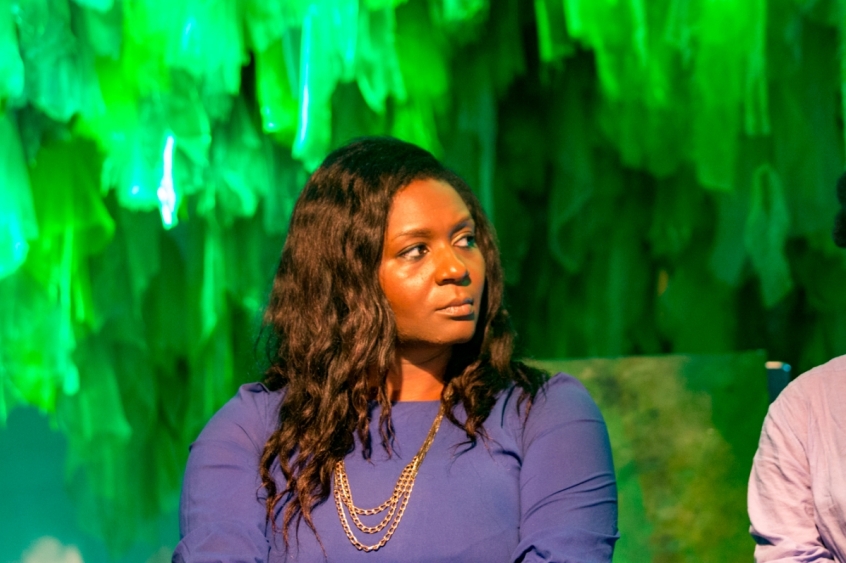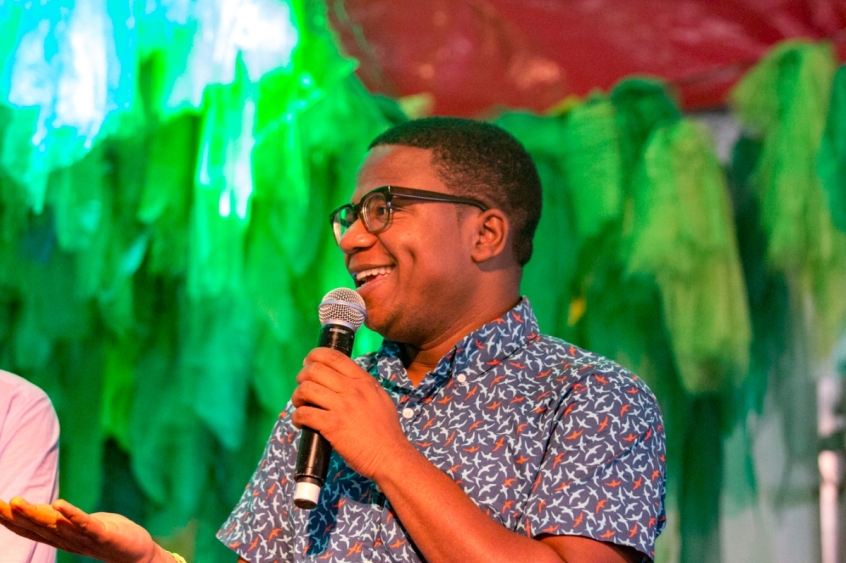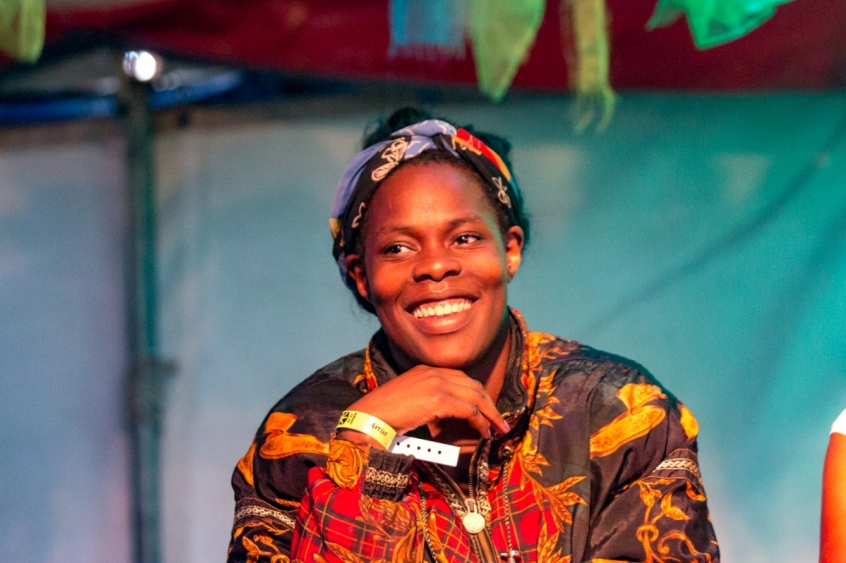A welcome breath of fresh air to counteract oft-repeated entry-level talks on gender equality in the Church, it's fair to say that last weekend's Greenbelt programme went far beyond the usual content about women's issues and faith that appears on the Christian events circuit.

"Welcome to the blackest panel there's ever been at Greenbelt," said chair Chine McDonald, drawing a chorus of shouts and cheers from the audience as she opened a discussion titled 'The Lemonade Effect: Beyoncé, Blackness, Feminism and White Discomfort'. Later that afternoon, two Christian feminists representing differing experiences and views covering topics from sex work to criminal justice to gender identity led a discussion of the 21st century feminist landscape.
While the talks we're used to hearing – the ones that make the case for egalitarian theology or affirm women in leadership and a departure from traditional gender roles in marriage – are important, providing a vital grounding from a biblical perspective and often acting as a lightbulb moment for many people, it's also important that we engage with feminist issues outside those relating to church and family. The secular feminist movement can seem overwhelming and tricky to navigate but creating yet another 'Christian bubble' that shies away from engaging with key issues isn't the answer.
It therefore felt almost revolutionary to see discussions that covered some of contemporary feminism's most controversial issues. In a culture that pays lip service to 'role models' yet doesn't always do the work to make them visible enough, a key theme explored by panelists Revs Broderick Greer, Sekai Makoni, Vanessa Kisuule and Amaka Okafor was what Beyoncé – her music, her image and her recent political activism – means to them.

This theme was expanded upon as they discussed other role models and the importance of representation and celebration of black life – particularly black womanhood. Kisuule highlighted how, in the light of black women feeling "constantly abused, raped, undermined and stereotyped" by society, seeing women be unapologetic about their blackness – their bodies, appearance, values and culture – is "healing".
'The Lemonade Effect' forced the audience to confront the idea of white discomfort and move beyond 'not seeing colour' – a sentiment that sounds inclusive in theory but erases identity and experience. As Greer succinctly put it, "Black lives matter more than white feelings," with the other panelists expanding on this by speaking about their experiences of moving from censoring what they say about racism for fear of upsetting white people, to being more forthright about what they face.

This is a potentially awkward issue for a white, progressive audience to face head-on and we were reminded that the barriers to tackling racism aren't just white supremacist groups and right-wing politicians – they're also the 'liberal' churches that tell black people fighting against racism to slow down, change their tone and lower their expectations, to be less angry and upset fewer people.
The message to the church from Natalie Collins and Marika Rose in their talk 'Which Christian Feminism?' came with a similar theme and it was clear that a key issue for speakers at both talks was the way concerns about racism and misogyny are often dismissed and minimised for fear of 'rocking the boat'.
Quoting Martin Luther King, Jr., Rose told a packed venue that "Freedom is never voluntarily given by the oppressor; it must be demanded by the oppressed." Collins pulled no punches when she spoke of her journey out of an abusive marriage and the moment she "started to realise that the church was part of the problem", perpetuating damaging ideas about gender and relationships.
Before taking on some of today's most thorny feminist debates, Collins and Rose encouraged the audience to discuss their feminist 'journey' so far, a period of just a few minutes that had the room buzzing with conversation. They also acknowledged the pitfalls of online feminist debate – the fact that digital spaces can feel intimidating, often with no quarter being given to those still developing their awareness of the issues at stake.
The pair provided a primer on intersectionality – how women experience multiple layers of discrimination dependent on class, education, sexuality, disability and race – before discussing 21st century feminist flashpoints such as sex work, trans inclusion, gender identity and the role of men in the movement. Their differing views here provided a more complex analysis than the sometimes one-dimensional airing these issues receive at Christian events. They also took the opportunity to talk about the debates dividing Christian feminists – reproductive justice, LGBTQ inclusion and unity across theological difference.
'Which Christian Feminism?' also came with a warning to all those who identify with egalitarian theology – firstly, not to ignore secular feminist issues and secondly, not to position egalitarianism as a superior alternative to feminism, turning it into a more palatable movement that eschews anger and promotes supporting equality only within the bounds of a femininity that's acceptable to both society and Church. "Be careful of language that warns women to be softer and calm down and not be too demanding," said Collins, as Rose added, "We want to work towards reconciliation and peace but we're not there yet."
'The Lemonade Effect' ended on a similar note, with a question from a festival trustee about how Greenbelt could be more inclusive and change its reputation as a festival for the white middle classes. The panel suggested increased high-level involvement from people of colour, more ticket concessions and "being prepared for things to change" as a result, warning against a misguided focus on 'diversity' – increasing representation on the terms of the more powerful only – at the expense of true inclusion.
The problem of the pace and shape of progress being dictated by those who uphold the status quo was a key point for everyone to take away from both sessions and there appeared to be broad support among those attending for radical change. Discussions afterwards both at the festival and on social media indicated a lot of enthusiasm for a programme of feminist ideas that went beyond 'Are men and women equal?' and we can only hope that other Christian events take note.
Both talks can now be purchased online.
Hannah Mudge writes about feminism and faith and is one of the founders of the Christian Feminist Network. She works in digital communications and fundraising for an international development organisation. Follow her on Twitter @boudledidge













